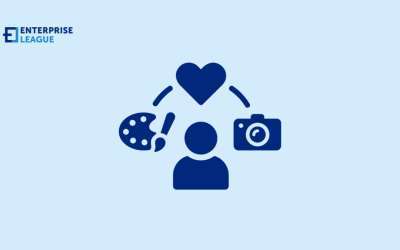Freelancing as a term appeared somewhere in the mid-00s after the commercialization of the use of the Internet on a global scale. Since the past decade, this style of work has become more and more prevalent among people, especially since the pandemic began in 2020. According to demandsage.com, the number of freelancers in the US has risen to 70,4 million in 2022. That number is going to grow in the upcoming years.
Like any job, freelance work has pros and cons too, which is why the opinions are divided. For some people, freelancing might be difficult because there is no guarantee of steady employment. Others view freelancing as freedom because you have total control over your work and finances.
If you are still hesitating about quitting your job and starting working full-time as a freelancer or working part-time as a side hustle in your spare time. This article will give you a clear picture of the pros and cons of freelancing.
The pros and cons of freelancing that everyone should know
Here are some pros and cons of freelancing that you should think about if you’re considering building a career as a freelancer.
The pros
Five advantages freelancers enjoy that people who work regular 9-to-5 jobs don’t have.
Be your own boss
One of the biggest advantages of freelancing is the opportunity of being your own boss. So freelancing can be your career path if working for someone else makes you feel trapped in your position with no chance for progress. Everything is up to you, from the number of hours you put into the project you decide to work on, to the money you earn at the end of the project.
For some people, this can be liberating and enables them to thrive. If you want to be successful as a freelancer and be your boss, you must have self-confidence, a desire to learn, and the ability to manage a business.
No commute
Another benefit of freelancing is the freedom to work remotely from wherever you want without going to your workplace. You can choose to work from home depending on your sector. This is another fantastic benefit of working for yourself.
Long commutes to work can be eliminated, freeing up time that can be used for work or other activities. Some commutes can eat up hours of your day, and make you feel miserable before you even arrive at work. The perk of working from home (or your favorite place) also comes with the obligation to ensure that you do it efficiently and productively. Because it’s very easy to lose concentration when you work from a comfort zone.
Choose who you work with
As an employee, you have little to no control over your coworkers. Your manager will choose a team of people that he believes are best for the company. With freelancing, you won’t have this problem anymore because you decide who you work with.
You can make your own rules as a freelancer and choose clients and coworkers who weave well with you. You aren’t required to work for clients you dislike or put up with a terrible coworker. However, this doesn’t prevent the possibility that you will occasionally have to work for a picky or obnoxious customer.
Flexibility
Freedom and flexibility are two of the advantages that freelancing gives you. Working as a freelancer can be a dream job if you have children to care for or maintain a work-life balance. Depending on your sector, freelancing allows you to create your schedule how you like. You decide when you work, how many hours to work when to take a break, and from where you work.
This can be a significant advantage because it enables independent contractors to care for their children or spend time with their families while working. To make your freelancing successful, keep in mind that organization is essential and that you will still need to invest a significant amount of time in work.
Money
Another advantage of being a freelancer is the fact that you don’t have income limitations.
When you work as an employee, your salary will only slightly increase each year, if at all. However, as a freelancer, you can set higher prices for your offers and earn more money if you become recognized as an authority in your occupation.
As you gain trust among your clients, your income will increase in direct proportion to how much you work and how large the projects you contribute to are. Additionally, you would pay less in taxes if you operate your business as a limited company rather than as an employee.
The cons
Five disadvantages freelancers have that people who work regular 9-to-5 jobs don’t have.
Irregular income
Although freelancing has many advantages, it also has disadvantages, one of them is not having a steady monthly income. If you leave your regular job, you also leave behind the stability it provides in the form of a steady salary. One of the major disadvantages of being a freelancer is this. Freelancers must constantly plan and manage their upcoming projects and incomes and chase potential clients.
However, the stress of always looking for projects is reduced if a freelancer has a few loyal clients. That’s why is important to have specific expertise and experience in a certain field.
No employee benefits
Another disadvantage of freelancing is not having employee benefits such as pension plans, and private healthcare. If you work as a freelancer, you won’t get compensated if you take a vacation or are forced to take time off due to illness. This means that you must always have a saving account for emergencies that you can use to cover lost wages or time off.
That’s why you need to think carefully and make a good strategy for your employee benefits if you want to work as a freelancer. Because freelancing doesn’t offer you the protection that people who have a full-time jobs have.
Chasing after slow-paying clients
One of the main differences between full-time employment and freelancing is that when you work full-time, you get paid as promised every two weeks or every two months. It would be odd if you weren’t paid on those anticipated dates.
But, when you are a freelancer, you must establish your payment terms and be willing to defend yourself if a customer has trouble paying you. Sometimes you will have situations like these. A client who has agreed to your payment terms can claim that you must wait one additional week because their accounting team has been out of the office. Or, a client can claim that they will postpone paying all freelancers for a month due to slow sales.
Loneliness
Even though working remotely from your comfy home or your favorite place may sound like a dream job to you, still some people don’t want to work as freelancers. This style of work is quite monotonous in a long run and if you are an extrovert, you’ll start feeling isolated from the environment.
On the one side, the office can be noisy and full of interruptions from coworkers and other visitors, yet, you will discover that working alone isn’t very enjoyable. Sometimes coworkers can help you in your work and can be a part of your support network. So, as a freelancer, you will have to establish your network and support.
Competition
Another disadvantage is that you’ll often face a lot of competition because the pool of freelancers is enormous, and there will be a lot of competition in your field of expertise. This could drop your work’s prices to unacceptably low levels in a long run.
To combat this issue, you have to build a sustainable strategy. Make sure to keep up with market trends, build a strong skillset, establish a solid clientele, and keep up with marketing your services to specific audiences. This can help you to step out of your competition, get noticed by serious clients, and contribute to large projects.
Conclusion
To be a freelancer or not, what’s going to be?
Of course, you are the only one who can decide on this question. However, you may have a better picture of if freelancing is an option for you after reading the pros and cons of freelancing listed above.
Don’t rush, you don’t have to choose today. Take your time to process all information, then consider what to do. If the pros outweigh the cons, then start a freelance career. If not, keep your daily job and move on with your life.
More must-read stories from Enterprise League:
- Implement a CRM strategy for your business using this guide.
- Proven and tested psychological tactics for successful marketing.
- Learn how to deal with being professionally ghosted like an expert.
- The biggest mistakes entrepreneurs make and how you can avoid them.
Related Articles
How to turn your hobby into a business in 2024
How long have you been dreaming to turn a hobby into a business and swim in cash? Stop dreaming, read our article and take action.
Home office security: 10 cybersecurity tips for remote workers
Working from home has become a reality and there are new challenges associated with remote work and maintaining the security of sensitive information.
6 supply chain challenges and how to solve them
When your business works with physical products it won’t be long until certain supply chain challenges arise. Knowing how to deal with these supply chain issues is crucial.
How to turn your hobby into a business in 2024
How long have you been dreaming to turn a hobby into a business and swim in cash? Stop dreaming, read our article and take action.
Home office security: 10 cybersecurity tips for remote workers
Working from home has become a reality and there are new challenges associated with remote work and maintaining the security of sensitive information.





